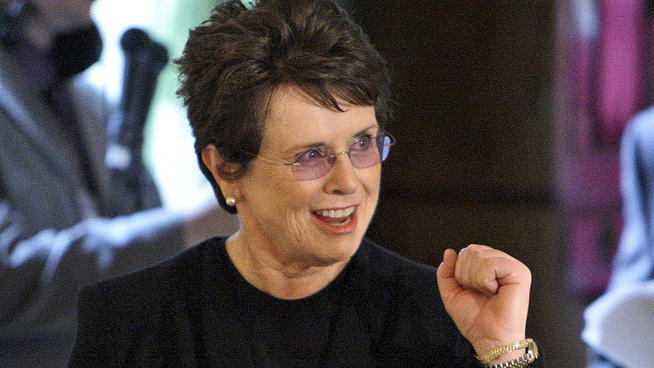Gay Teen’s Suicide Spurs Review of Bullying Policy
ASHLAND CITY, Tenn. – In the weeks since an openly gay teenager killed himself, the reaction in this Tennessee town has included petition drives to examine the anti-bullying policy in the local schools and a tense public meeting to discuss suicide prevention efforts.
Jacob Rogers shot himself on Dec. 7.
He wrote about family in the notes he left behind before his death, but there was no mention of bullying, authorities said.
However, a friend told The Tennessean (http://tnne.ws/vYstEU ) that Rogers was an almost daily target for name-calling at Cheatham County Central High School
“It was like every day, every class,” said 18-year-old Kaelynn Mooningham.
Friends and family question whether the school did enough to protect Rogers, and if the district’s anti-bullying policy is too lenient for students who do harm.
Hundreds have signed a petition to toughen the anti-bullying policy, and more than 1,700 have signed a similar online petition started by the Tennessee Equality Project, a gay-rights group.
In public meetings, other students have told stories of ridicule and abuse.
Justin Philalack, a 2009 graduate, said in an interview that he hid that he was gay while at the school.
“The guys that were out and gay, they were always ridiculed,” he said. “To me, I never saw any punishment.”
School officials have defended the policy. Director of Schools Tim Webb said a revision in the past year mandated reporting incidents. The rules cover all the bases now, he said.
Webb does not anticipate further changes, but he knows petitions and another recent meeting were geared toward revisiting the policy through the school board.
In Rogers’ case, officials found just one report of bullying in the year since Webb and Principal Glenna Barrow took their positions.
“We know rumors and speculation of previous bullying,” Webb said. “We are still looking into that.”
He insisted that Barrow and the counselors went “above and beyond” to help Rogers with his challenges. Citing confidentiality laws, he declined to discuss specifics.
“Is there bullying that’s going on? Absolutely,” Webb said. “But I don’t buy into the idea for one minute that Cheatham County schools are less tolerant than another rural school system in the region or the state.”
Rogers’ longtime friend Maricela Zamudio, a senior, who had supported her friend when he had expressed suicidal thoughts before, was hesitant to criticize officials.
“The school actually did a lot,” she told the Nashville newspaper. “He came in multiple times telling (counselors) he had troubles in his life. Obviously they could have brought in more help.”
A town meeting called to discuss suicide prevention was shut down because participants became increasingly angry.
Members of the Tennessee Suicide Prevention Network spent parts of four days in the high school helping students, teachers and staff cope with their grief and to learn the warning signs of suicide.
Scott Ridgway, executive director of the network, brought similar information to the community meeting, hosted at the same funeral home that handled Rogers’ burial. He discussed the complexities of suicide and grieving. He also spoke on behalf of the school and the emotion he’d seen in devastated staff members.
But his comments applauding the district bullying policy “went over like a lead balloon,” said Rogers’ maternal grandmother, Sandra McDonald. She said people were upset to hear the school defended, and that the meeting was organized as a lecture.
Nobody denies that bullies got to Rogers during his four years at the high school.
Rogers didn’t hide who he was. He wore tight-fitting clothes and shared outfits with girlfriends, Mooningham said. He obsessed over Lady Gaga, dressing up as the pop star, making sketches of her and listening over and over to her gay anthem, “Born This Way.”
“Jacob was Jacob and that was it,” said schoolmate Joney Williams, a junior. “I think he just wanted to do his thing. I don’t think Jacob was on this big mission to change the world or to change how everybody thought about him. I think he just wanted people to leave him alone.”
He had overcome an eating disorder but wrestled with drugs and alcohol, a friend said. And he had begun to deal with the adult world, encountering complications with health insurance after his 18th birthday. Some of those issues were mentioned in writings he left behind.
Meanwhile, the emotions unleashed by the tragedy are being harnessed by leaders of local gay-rights groups.
A cross-section of support groups hosted a recent town hall meeting.
“We don’t just want this to end, this energy,” Nashville-based civil rights attorney Abby Rubenfeld told a group of about 30. “We want to do something in Jacob’s name.”










